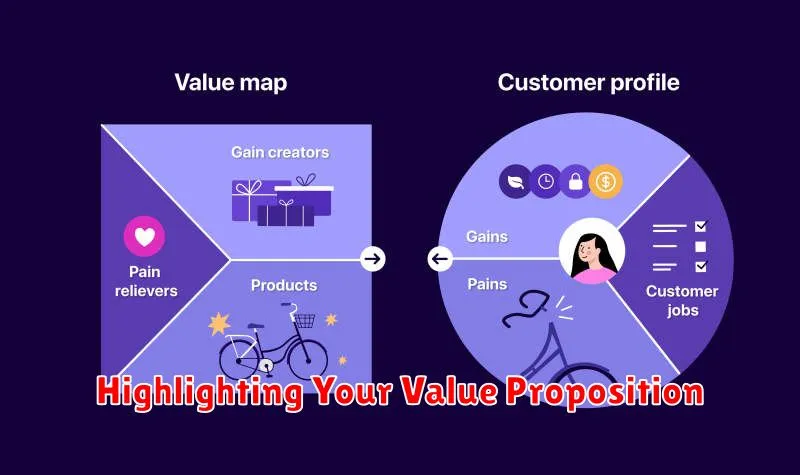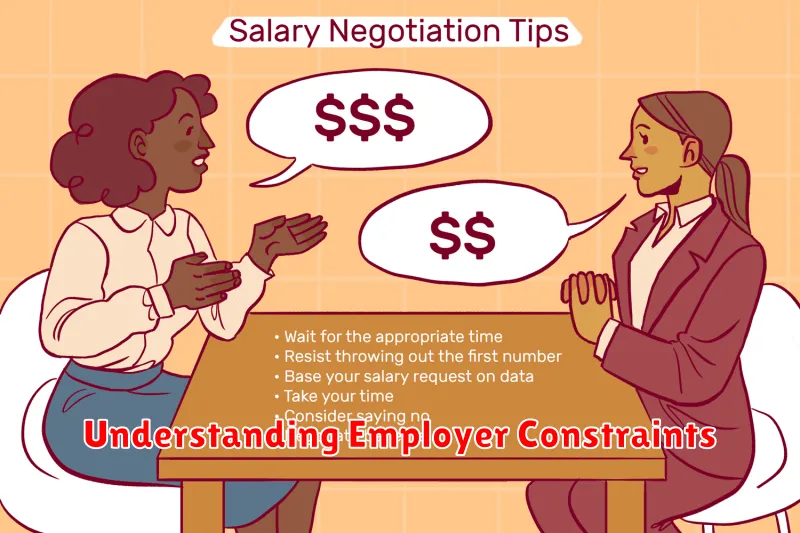Are you tired of feeling undervalued at your job? Do you feel like you deserve a higher salary but aren’t sure how to ask for it? You’re not alone. Many people struggle with salary negotiation, but it doesn’t have to be a daunting task. With the right approach, you can confidently negotiate a higher salary and get the compensation you deserve. This article will provide you with actionable tips to help you navigate the salary negotiation process and achieve your desired outcome.
Negotiating a higher salary can seem intimidating, but it’s a crucial step in advocating for yourself and securing your financial well-being. By understanding the key strategies and building your confidence, you can walk into any salary negotiation with the power to command a higher rate. Whether you’re applying for a new job or seeking a raise in your current position, this article will equip you with the tools and knowledge to effectively negotiate a salary that reflects your skills, experience, and market value. Get ready to take control of your financial future and get the compensation you deserve.
Researching Industry Salary Benchmarks
Knowing what others in your field are earning is crucial for negotiating a higher salary.
To gather this information, you can utilize several resources:
- Salary comparison websites like Glassdoor, Salary.com, and PayScale provide average salary data for specific job titles, locations, and company sizes.
- Professional organizations often conduct salary surveys and publish reports that can give you valuable insights into industry trends.
- Networking with people in your field can provide firsthand information about salaries and compensation packages. Don’t be afraid to ask for advice from your colleagues, mentors, or former classmates.
- Industry publications and online forums may feature articles or discussions about salary expectations. These resources can help you understand salary ranges for different positions and levels of experience.
When researching salary benchmarks, it’s important to consider factors such as your location, company size, and years of experience. These factors can significantly affect salary ranges.
By thoroughly researching industry salary benchmarks, you’ll be well-equipped to advocate for a competitive and fair salary during your negotiation process.
Assessing Your Market Value
Before you can negotiate a higher salary, you need to know what you’re worth. Assessing your market value is the first step in the negotiation process. This involves researching salaries for similar positions in your industry and location. You can use online salary tools, professional networking sites, or consult with a recruiter to gather data. Consider your experience, skills, education, and achievements to understand how your profile aligns with market standards.
Once you have a clear understanding of your market value, you’ll be better equipped to present your case for a higher salary. You can then confidently state your desired salary range based on your research and qualifications. Remember, knowing your worth gives you the leverage and confidence needed to negotiate effectively.
Quantifying Your Contributions and Achievements
When negotiating a higher salary, it’s crucial to present a compelling case for why you deserve more. Merely stating that you’re valuable isn’t enough. You need to quantify your contributions and achievements to demonstrate the tangible impact you’ve made.
Instead of saying “I’m a hard worker,” provide specific examples like: “I increased sales by 15% in the past year by implementing a new marketing strategy” or “I streamlined the production process, resulting in a 10% cost reduction.” By using numbers, you create a concrete picture of your value and make it harder for the employer to dispute your worth.
Think about your accomplishments that align with your company’s goals. Have you exceeded sales targets, improved customer satisfaction, or implemented successful projects? Highlight these achievements using clear, measurable metrics.
Be ready to present data, reports, or testimonials that support your claims. This could be anything from sales figures and customer reviews to project deliverables and performance evaluations. The more evidence you have to back up your claims, the stronger your negotiation position becomes.
Timing Your Salary Negotiation
The timing of your salary negotiation can significantly impact your success. While it’s important to be prepared and confident in your worth, timing plays a crucial role in creating a favorable environment for a successful negotiation. Here are key considerations for timing your salary negotiation:
Early Stages:
- Initial Offer: Avoid negotiating your salary during the initial offer stage. This can be perceived as pushy and may hurt your chances of getting an offer. Focus on demonstrating your skills and value during the interview process.
- Job Offer: Once you receive a job offer, you have more leverage to negotiate salary. However, avoid making your salary negotiation the first topic of conversation. Express your enthusiasm for the opportunity first.
Later Stages:
- After Accepting an Offer: You can revisit salary negotiations after accepting a job offer, but it’s crucial to approach it tactfully. Explain the reasons for your request, such as new information about market rates, or a change in your circumstances.
- Annual Review: Use your annual performance review as an opportunity to negotiate a raise. Have your accomplishments and contributions well documented and be prepared to present a compelling case for a salary increase.
Best Practices:
- Avoid Deadlines: Do not wait until the last minute to negotiate your salary. This can create unnecessary pressure and may lead to less favorable outcomes.
- Be Flexible: Be prepared to negotiate but also be flexible in your expectations. Sometimes a smaller raise or other benefits can be more valuable in the long run.
- Stay Professional: Remember to remain professional throughout the negotiation process. Even if you are unsuccessful, it is important to maintain a positive relationship with your employer.
Preparing a Compelling Case
When negotiating a higher salary, you need to present a compelling case for why you deserve it. This involves more than just stating your desired salary. You need to demonstrate your value to the company and show how your skills and experience align with the company’s goals.
Start by researching the industry. What are the average salaries for similar roles in your location and industry? This will give you a baseline for your negotiation. You can use salary databases like Glassdoor or Salary.com to get a better understanding of the market.
Next, highlight your achievements. Quantify your accomplishments whenever possible. For example, instead of saying “I increased sales,” say “I increased sales by 20% in one quarter.” This demonstrates your tangible contributions to the company’s success.
Finally, be prepared to discuss your future contributions. What are your goals for the role? How can you contribute to the company’s growth in the future? By showing your ambition and commitment, you can build a stronger case for a higher salary.
Practicing Your Negotiation Skills
Negotiating a higher salary can be daunting, but it’s essential for securing the compensation you deserve. One of the most effective ways to build confidence is by practicing your negotiation skills. You can do this in a variety of ways.
Role-playing: Partner with a friend or family member to practice different negotiation scenarios. This allows you to test out your arguments, responses, and overall approach in a safe environment.
Mock interviews: Practice answering common interview questions that involve salary expectations. This helps you prepare for the actual conversation and feel more comfortable discussing compensation.
Negotiation training courses: Many online and in-person courses focus on negotiation techniques. These courses provide valuable insights and strategies that you can apply to your salary negotiations.
The more you practice, the more comfortable and confident you’ll become in expressing your value and advocating for yourself during salary discussions.
Highlighting Your Value Proposition

Before you even start talking salary, you need to have a clear understanding of your value proposition. This is what makes you unique and valuable to the employer. It’s not just about your skills and experience, but also the results you’ve achieved and the impact you’ve made.
To effectively highlight your value proposition, you need to quantify your achievements. Instead of simply stating “I have excellent communication skills,” show them the results of your communication skills. For example, “I successfully negotiated a key partnership that resulted in a 15% increase in sales.” This makes your achievements tangible and measurable, demonstrating your worth.
You should also be prepared to demonstrate your value to the company. Research the company’s goals and challenges and show how your skills and experience can help them achieve those goals. This shows that you’ve done your homework and are genuinely interested in contributing to their success.
Remember, your value proposition is not just about what you can do, but also how you can add value to the company. Highlighting your value proposition is crucial for building a strong case for a higher salary.
Negotiating Beyond Base Salary

While your base salary is a crucial part of the negotiation, it’s not the only thing you should be considering. There are other valuable benefits and perks that can significantly impact your overall compensation package. Here are some key areas to negotiate beyond your base salary:
1. Signing Bonus: This one-time payment can be a great way to boost your initial compensation. Negotiate a signing bonus if you’re leaving a stable job or have a valuable skillset that the company is eager to acquire.
2. Annual Bonus: This performance-based bonus provides an incentive to exceed expectations. Explore options for structured bonuses tied to specific goals or company performance metrics.
3. Stock Options: If the company is publicly traded or has potential for growth, stock options can offer long-term financial benefits. Make sure you understand the vesting schedule and potential value of these options.
4. Health and Wellness Benefits: Negotiate for comprehensive health insurance plans, generous retirement plans, and other benefits that align with your health and well-being.
5. Paid Time Off: Secure sufficient vacation time, sick leave, and personal days to ensure a healthy work-life balance.
6. Professional Development: Request a budget for training, conferences, and certifications to enhance your skills and career growth.
7. Flexible Work Arrangements: Discuss options for remote work, flexible hours, or compressed workweeks if those are important to you.
Remember, negotiating for these benefits beyond base salary is a crucial step towards securing a truly rewarding compensation package. By being prepared and presenting your value effectively, you can increase your overall compensation and create a mutually beneficial arrangement.
Understanding Employer Constraints

Before you dive into salary negotiations, it’s crucial to understand the constraints your potential employer might face. This knowledge will help you tailor your approach and present a compelling case for a higher salary. Here are some key factors to consider:
Budget limitations: Every company operates within a specific budget, and salary is a significant expense. They may have a predefined salary range for the role, and exceeding that range might require special approval.
Company performance: If the company is experiencing financial challenges or has recently undergone restructuring, they may be less flexible on salary. Consider researching their financial performance before negotiations.
Industry norms: Salary expectations vary across industries and geographic locations. It’s essential to research average salaries for similar roles in your field and location. You can use online resources like Glassdoor or Salary.com to get insights.
Internal equity: Companies strive to maintain internal equity in compensation. They may need to consider the salaries of existing employees in similar roles before offering a significantly higher salary to a new hire.
Maintaining Professionalism Throughout the Process

While it’s crucial to advocate for your worth and secure a salary that reflects your value, it’s equally important to maintain professionalism throughout the negotiation process. This means approaching the discussion with respect, honesty, and a clear understanding of your own strengths and the company’s needs.
Avoid aggressive tactics. Demanding a specific salary figure without a clear understanding of the company’s budget or offering ultimatums can damage your reputation and hinder future opportunities. Instead, focus on presenting your skills and achievements in a positive and persuasive way, demonstrating the value you bring to the role.
Communicate effectively. Active listening is essential for a successful negotiation. Ensure you understand the company’s perspective and be prepared to address their concerns. Avoid interrupting and use clear, concise language. If you’re unsure about something, don’t hesitate to ask for clarification.
Stay composed. Negotiations can be stressful, but it’s important to remain calm and collected. Don’t let emotions cloud your judgment or lead to impulsive decisions. Focus on presenting your case rationally and professionally, even in the face of challenging responses.
Maintain positive relationships. Even if the negotiation doesn’t result in the salary you hoped for, it’s important to leave a positive impression. Be gracious, express your appreciation for their time and consideration, and maintain a professional demeanor throughout the process. This will help you build a strong relationship with the company and leave the door open for future opportunities.

